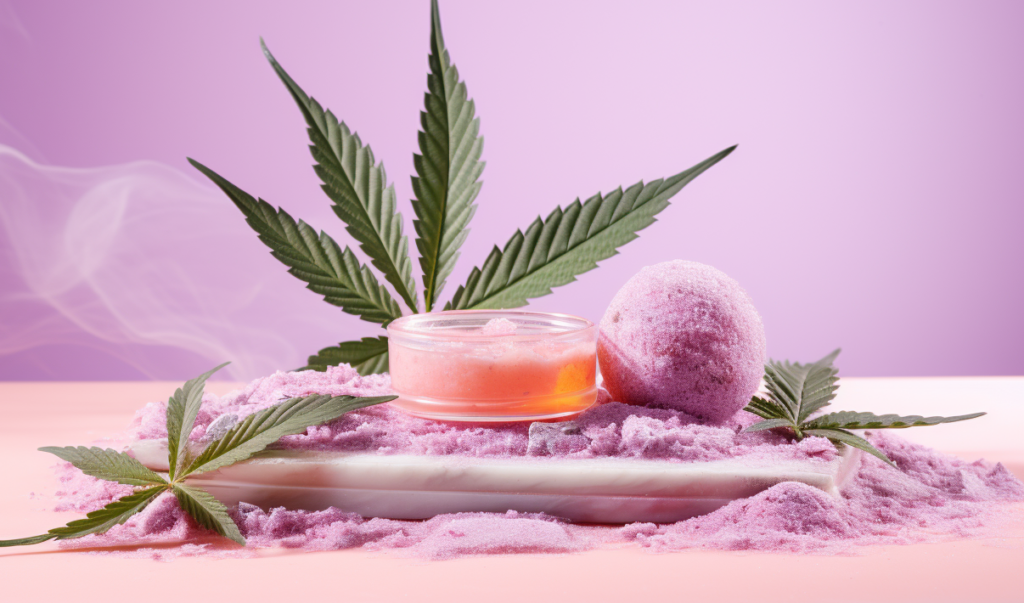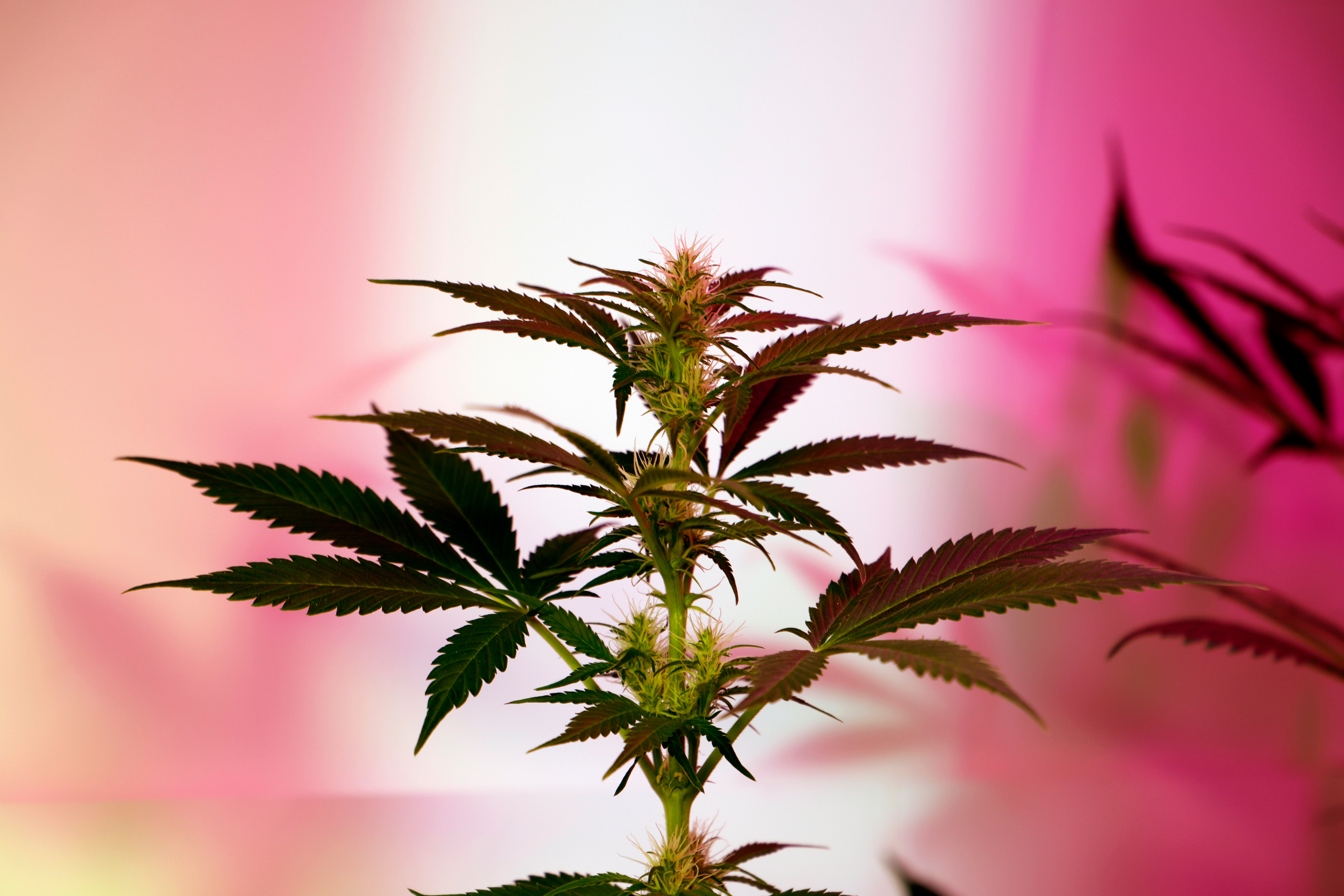| What is this blog about? |
| As Delta-8 THC gains popularity, new regulations are emerging in 2025, particularly in states like California, where stricter controls on cannabis products are expected. In this post we break down the new regulations and how CBD merchants and consumers can navigate these changes. |
Delta-8 THC has gained significant attention for its psychoactive effects similar to Delta-9 THC but with a milder high. This cannabinoid is now facing new legal and regulatory challenges with states introducing updated rules, and consumers, manufacturers, and dispensaries alike are trying to navigate the changes.
Let’s break down what Delta-8 THC is, its current legal status, and how the 2025 regulations may affect both the cannabis industry and consumers.
What is Delta-8 THC?
Delta-8 is typically derived from hemp through a conversion process, as hemp contains only trace amounts of this cannabinoid. This makes it widely available in states where marijuana remains illegal, as long as the hemp used meets the legal threshold for THC (under 0.3%).
Delta-8 THC is a cannabinoid found in cannabis, chemically similar to Delta-9 THC, the primary psychoactive compound in marijuana. While it has similar effects, Delta-8 is less potent, offering a milder, more relaxed high with fewer anxiety-inducing side effects, making it popular among users seeking therapeutic benefits without the intensity of Delta-9 THC.
Is Delta-8 THC Legal?
The legal status of Delta-8 THC remains in flux. In 2018, the Farm Bill legalized hemp-derived products containing less than 0.3% Delta-9 THC, which inadvertently included Delta-8 THC. However, this has not stopped various states from introducing their own laws to regulate or ban Delta-8.
According to Area 52, some states have moved quickly to regulate Delta-8, with bans or restrictions being enforced in places like Alaska, Arizona, and Arkansas. Other states, such as California, have not enacted a statewide ban but are regulating the sale of Delta-8 products to ensure consumer safety.
2025 Regulations and Delta-8 THC
As we enter 2025, there is a significant push to clarify and regulate the sale of Delta-8 THC more thoroughly. In California, for example, new laws are being introduced to address emerging cannabis trends. One of the biggest changes coming is the introduction of cannabis cafes, where patrons can consume cannabis on-site in a social setting. This is part of California’s evolving cannabis culture, which may soon include Delta-8 as a legally consumable product in these spaces.
Delta-8 THC market is projected to reaching all time high
have already enacted bans or restrictions on Delta-8 THC
prefer Delta-8 for its milder effects compared to Delta-9 THC
However, with these new regulations, the state is also looking to implement stricter controls on Delta-8 products to prevent unregulated, unsafe products from entering the market. This could involve mandating third-party testing for purity and potency, making sure consumers are only purchasing products that meet safety standards.
California isn’t alone in its approach. Other states are also reevaluating their stance on Delta-8 THC. Federal authorities may soon provide more specific guidance on whether Delta-8 should be considered a controlled substance or if it remains in the legal gray area where it is widely available.
State-Specific Restrictions on Delta-8 & Hemp-Derived THC
While the 2018 Farm Bill federally legalized hemp-derived cannabinoids (including Delta-8 THC), individual states have imposed their own regulations, with some banning or restricting sales altogether. If you’re selling THC products online, it’s crucial to understand these state-specific rules and implement geo-restrictions accordingly.
States Where Delta-8 THC Is Banned
The following states have explicitly banned Delta-8 THC, meaning businesses cannot legally sell or ship products containing this cannabinoid:
- Alaska
- Colorado
- Delaware
- Idaho
- Iowa
- Minnesota
- Montana
- New York
- Nevada
- North Dakota
- Oregon
- Rhode Island
- Vermont
- Washington
States with Heavy Restrictions on Delta-8 THC
In these states, Delta-8 is not outright banned, but sales and distribution are highly regulated. This may include restrictions on product types, age requirements, or licensing requirements:
- California – Delta-8 is only permitted if derived from licensed cannabis sources, making it subject to the same restrictions as marijuana.
- Kentucky – Requires a licensing system for Delta-8 sales and strict labeling requirements.
- South Carolina – Law enforcement has cracked down on Delta-8, and while it isn’t explicitly banned, sales are discouraged.
- Connecticut – Delta-8 must be sold only through licensed cannabis dispensaries.
- Michigan – Delta-8 is regulated under the state’s marijuana laws and must be sold through licensed cannabis businesses.
States Where Delta-8 Is Legal with No Major Restrictions
These states currently allow Delta-8 THC sales without significant restrictions beyond standard hemp laws (e.g., products must contain less than 0.3% Delta-9 THC per the Farm Bill):
- Florida
- Texas
- Illinois
- Georgia
- Wisconsin
- Virginia
- Indiana
- Missouri
- Pennsylvania
Emerging State Laws & Future Changes
Several states are considering new regulations on hemp-derived cannabinoids, particularly due to concerns over product safety, lack of testing requirements, and how these cannabinoids compare to traditional cannabis.
- California (2025 Law) – Starting in 2025, California will allow cannabis cafés where consumers can buy and consume THC products on-site, signaling a shift toward more open cannabis policies.
- Hemp Product Labeling Laws – Many states, including Tennessee and Louisiana, are pushing for clearer labeling requirements to prevent misleading claims on THC content.
- Possible Bans in 2024-2025 – Florida, Texas, and Pennsylvania have active discussions around restricting Delta-8 due to safety concerns, so businesses should monitor updates in these markets.
What This Means for eCommerce Businesses
If you’re selling THC products online, you must:
✔ Implement geo-restrictions to prevent shipments to banned states.
✔ Stay updated on state laws to adjust your shipping policies accordingly.
✔ Ensure compliance with age verification to meet legal requirements.
✔ Partner with a payment processor that understands high-risk transactions in the cannabis space (such as Bankful).
What Consumers Should Expect in 2025
As regulations evolve, consumers will likely see more standardized and regulated Delta-8 products. Companies producing Delta-8 THC products may have to adhere to new quality assurance standards, including lab testing, child-resistant packaging, and clearer labeling. In addition, there may be more restrictions on the advertising of Delta-8 products, which could change the way companies market them to potential customers.

For consumers in states that are introducing new laws around Delta-8 THC, there may be a shift in availability. Some states may restrict the sale of Delta-8 entirely, while others may create frameworks for its regulated distribution, much like traditional cannabis.
What This Means for the Cannabis Industry
For manufacturers and dispensaries, 2025 presents both challenges and opportunities. Companies that have been operating in the legal gray area around Delta-8 may need to pivot to comply with stricter regulations. On the other hand, new regulations may also create a more transparent and secure market for Delta-8 THC products, benefiting those who adhere to safety standards.
In the longer term, the cannabis industry may see a shift toward more mainstream acceptance of cannabinoids like Delta-8, particularly as regulations clarify and consumer education improves. This could open up new avenues for products that contain Delta-8 THC, such as edibles, vapes, and tinctures.
The future of Delta-8 THC is uncertain but promising, with many states reevaluating their stance as we head into 2025. As new regulations are put into place, consumers can expect a more regulated, safer market for Delta-8 THC products. Whether you’re a consumer or part of the cannabis industry, it’s essential to stay informed about these changes to ensure that you’re following the law and making the best decisions for your health and business.
Stay tuned for updates, as the landscape surrounding Delta-8 THC is expected to continue evolving rapidly.

